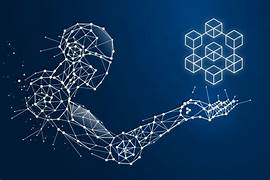
Artificial Intelligence (AI) is transforming education at an unprecedented pace. From personalised learning experiences to automated grading, AI-powered tutors are reshaping how students learn and interact with educational content. But does this mean that human teachers will become obsolete?
The rise of AI tutors has sparked a debate about the future role of educators. While AI can provide 24/7 access to learning, instant feedback, and adaptive learning paths, it still lacks the human connection, emotional intelligence, and mentorship that teachers provide.
So, will AI tutors replace teachers, or will they enhance their capabilities? In this article, we’ll explore the impact of AI on education, its benefits, limitations, and whether traditional teachers still have a place in the classroom of the future.
What Are AI-Powered Tutors?
AI-powered tutors are digital learning assistants that use machine learning, natural language processing, and data analytics to personalise education. These systems can:
- Assess student performance in real time
- Provide instant feedback and suggestions
- Adjust lessons based on individual strengths and weaknesses
- Simulate human-like interactions using chatbots and virtual assistants
Popular AI tutors like Khan Academy’s Khanmigo, Squirrel AI, and Google’s Socratic are already helping students worldwide.
The Benefits of AI Tutors in Education
1. Personalised Learning Experiences
AI can analyse a student’s learning style, pace, and weaknesses to tailor lessons accordingly. Unlike traditional classrooms where teaching is one-size-fits-all, AI offers a customised learning path.
2. 24/7 Availability and Instant Feedback
Teachers have limited time, but AI tutors are available around the clock. They can provide instant feedback on assignments, quizzes, and practice problems, helping students learn without delays.
3. Automated Grading and Administrative Tasks
AI can grade multiple-choice tests, essays, and even complex mathematical solutions. This frees up teachers to focus on interactive teaching rather than paperwork.
4. Breaking Language Barriers
AI-powered tutors can translate and teach in multiple languages, making education more accessible to students from different backgrounds.
5. Enhancing Student Engagement
Gamification, virtual simulations, and AI-driven interactive content keep students engaged and motivated in ways traditional methods often fail to do.
The Limitations of AI Tutors
1. Lack of Emotional Intelligence and Human Interaction
AI lacks the ability to understand emotions, build relationships, and provide moral support. Teachers play a vital role in mentoring, motivating, and inspiring students—something AI cannot replicate.
2. Limited Creativity and Critical Thinking
While AI can provide data-driven insights, it struggles with teaching creativity, problem-solving, and abstract thinking—skills essential for real-world success.
3. Over-Reliance on Technology
Too much dependence on AI might reduce students’ critical thinking skills. If students rely solely on AI-generated answers, they may lose the ability to think independently.
4. Accessibility and Cost Issues
Advanced AI tutors require internet access and digital devices, which not all students can afford. This may widen the education gap between privileged and underprivileged students.
Will AI Tutors Replace Teachers?
Despite the rapid growth of AI in education, teachers will not become obsolete. Instead, AI will act as a teaching assistant, helping educators enhance their teaching methods rather than replace them.
How Teachers and AI Can Work Together:
- AI handles administrative tasks, grading, and lesson planning while teachers focus on interactive learning and emotional support.
- AI tutors provide personalised learning paths while teachers guide students through critical thinking and real-world problem-solving.
- AI-powered analytics help teachers identify struggling students and offer personalised interventions.
The Future of AI in Education
1. AI-Powered Classrooms
Future classrooms will integrate AI-driven lesson plans, real-time student progress tracking, and interactive AI tutors for a blended learning experience.
2. Virtual Reality (VR) and AI Tutors
AI combined with VR will create immersive learning environments, allowing students to experience history, science, and languages in a more engaging way.
3. AI for Special Needs Education
AI-powered tutors can provide custom learning solutions for students with disabilities, making education more inclusive and accessible.
4. AI-Driven Career Guidance
Future AI tutors may help students choose career paths by analysing their skills, interests, and performance trends.
Conclusion
AI-powered tutors are transforming education, making learning more personalised, accessible, and efficient. However, they cannot replace human teachers. Education is not just about delivering information—it’s about inspiring, mentoring, and shaping young minds.
The future of education will be a collaborative effort between AI and teachers, combining the best of technology and human expertise to create a learning experience that is both effective and meaningful.
FAQs
1. Can AI tutors replace teachers completely?
No, AI can assist with teaching, but it lacks emotional intelligence, creativity, and mentorship, which only human teachers can provide.
2. Are AI tutors better than human teachers?
AI excels in personalised learning and instant feedback, but human teachers offer guidance, motivation, and emotional support, making both equally important.
3. What are the risks of using AI in education?
Over-reliance on AI can lead to reduced critical thinking skills, accessibility issues, and lack of emotional connection in learning.
4. How can teachers use AI in the classroom?
Teachers can use AI for grading, personalised learning, real-time student progress tracking, and interactive lessons.
5. Will AI make education more accessible?
Yes, AI can help students learn at their own pace, translate lessons into different languages, and assist students with disabilities.
6. What skills can AI tutors not teach?
AI struggles with creativity, ethical reasoning, leadership, and emotional intelligence, which are essential life skills.
7. How will AI shape the future of education?
AI will create more interactive, personalised, and efficient learning experiences, but teachers will still be needed for guidance, mentorship, and inspiration.
Leave a Reply